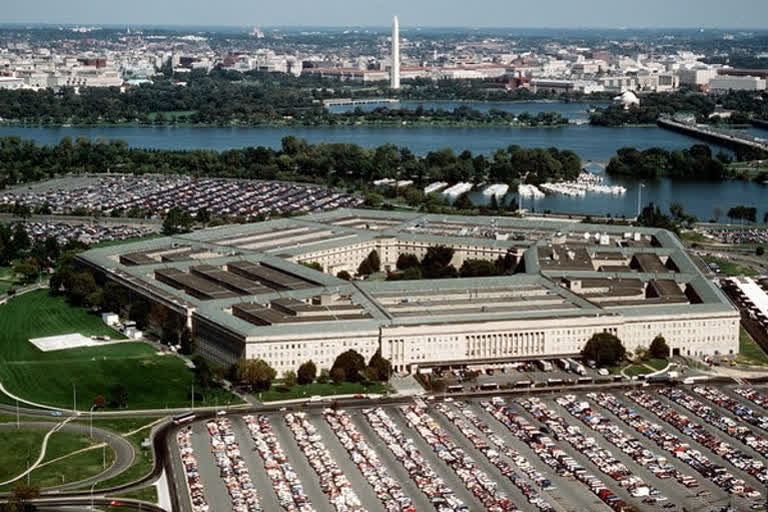Washington (US): US Defence Secretary Lloyd Austin along with two of his top generals have told Senators that the ties that Pakistan and its spy agency ISI have with the Taliban can only be discussed within closed doors. In the public domain, they can only say that the relationship between the two is going to become increasingly complex post withdrawal.
"An in-depth conversation about Pakistan probably would be better suited in a closed hearing here so,” Austin told members of the Senate Armed Services Committee when Senators asked pointed questions about recent news reports of the Inter-Services Intelligence (ISI), the intelligence wing of Pakistan Army, and its ties with the Taliban.
His two generals, Gen Mark Milley, Chairman of the US Joint Chiefs of Staff, and Gen Frank McKenzie, Commander of US Central Command said the same. "I've had several conversations over the years and also recently with Pakistanis and there's no question in my mind that the relationship between Pakistan and the Taliban is going to become increasingly complex. There's a whole series of issues there that have national security interests for the United States that are best handled in a different session,” Milley said.
ISI chief Lt Gen Faiz Hameed dashed to Kabul on an unannounced visit in August last week and met top Taliban leaders. He was the first high-ranking foreign official to visit Afghanistan since the Taliban seized the Afghan capital in mid-August. Three days after Hameed's visit, the Taliban announced an interim government dominated by the hardline leaders of the insurgent group. At least 14 members of the Taliban's hardline interim government are on the UN Security Council blacklist, including acting Prime Minister Mullah Mohammad Hasan Akhund and his both deputies.
Read: Putin, Erdogan sit down for talks on war-torn Syria
The inclusion of top leaders of the pro-Pakistan Haqqani Network in the interim government is an indication of the influence Islamabad, especially its intelligence agencies have over the Taliban. Pakistan's relationship with the Taliban is going to become significantly more complicated as a result of the US withdrawal from Afghanistan, McKenzie said.
"In fact, they're going to see pressure moving into Pakistan from Afghanistan in ways that they've been able to deflect before because of the pressure that we and our allies had on them," he said. "So, I think that's a significant problem that Pakistan is going to face. I'd like to talk about their special weapons perhaps in the closed session. As has been noted by several people, in order to get to Afghanistan, you have to fly over Pakistan unless you come from the north. And that's a subject of continuing deliberation with Pakistan," he added.
"I can shed a little bit more light on that going forward. But, actually, over the last 20 years, we've been able to use what we call the air boulevard to go in over Western Pakistan. And that's become something that's vital to us, as well as certain landlines of communication. And we'll be working with the Pakistanis in the days and weeks ahead to look at what that relationship is going to look like in the future. But I can talk a little more in the closed session,” he said.
Senator Jeanne Shaheen said that it's long been publicly reported that the Pakistani intelligence services have maintained a close and continuing relationship with the Taliban. "Do we expect that relationship to become more complicated now that the Taliban is in power? Are we concerned about Pakistan's nuclear weapons and the potential that terrorist groups might be able to get access to those weapons?” he asked.
"Can you talk a little bit about how you see the relationship with Pakistan and the Taliban playing out and the challenges that presents for the United States?” the Senator asked. Senator Gary Peters asked about shared interest with Pakistan.
"I think that one key shared interest is the prevention of a humanitarian disaster in Afghanistan or in the region. And so, I think we'll continue to share that interest. I do think there are some intersections in terms of certain types of terrorist activity that I think we can both remain focused on,” Austin said.
PTI



